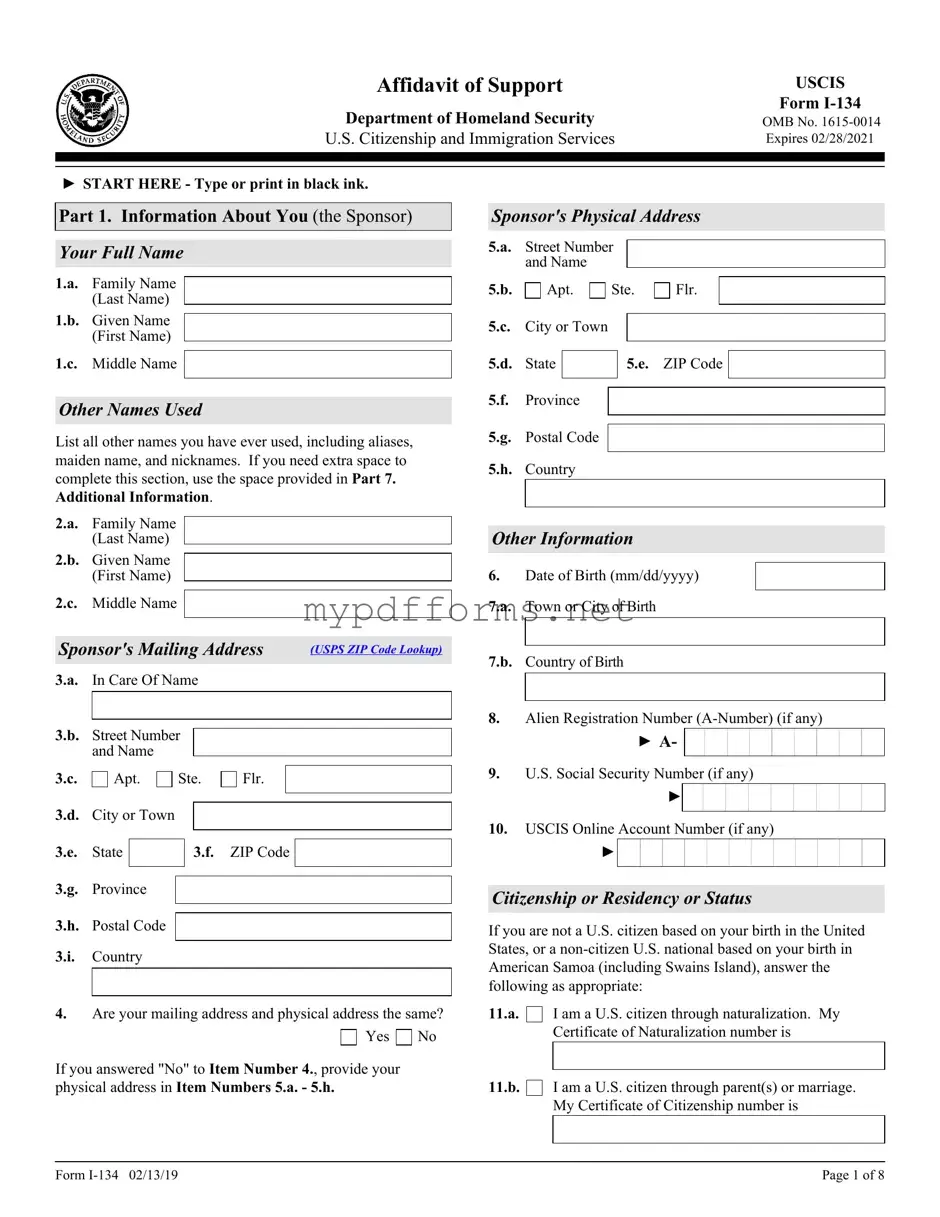The USCIS I-134 form, also known as the Affidavit of Support, is a document used by individuals in the United States to demonstrate their ability to financially support a visa applicant. This form is particularly relevant for non-immigrant visa categories, where it serves to assure the U.S. government that the applicant will not become a public charge. Similar to the I-134, the I-864 form, or the Affidavit of Support Under Section 213A of the INA, is used for family-based immigration. The I-864 is a more formal commitment, often required for immigrants applying for a green card. It binds the sponsor to support the immigrant financially, ensuring they have adequate means to live in the U.S. without relying on government assistance.
Another document that shares similarities with the I-134 is the Form I-130, Petition for Alien Relative. While the I-134 is focused on financial support, the I-130 establishes a qualifying relationship between the petitioner and the beneficiary. This form is essential for family reunification processes, allowing U.S. citizens and lawful permanent residents to bring their relatives to the United States. The relationship demonstrated in the I-130 can also impact the financial obligations outlined in the I-134, as it sets the stage for immigration eligibility.
The I-601 form, Application for Waiver of Grounds of Inadmissibility, is another related document. While not directly comparable in purpose, the I-601 may come into play when an individual is found inadmissible due to financial reasons. If a visa applicant cannot meet the financial criteria, the I-134 may be used to support their waiver application, showcasing the sponsor’s commitment to financially support the applicant despite inadmissibility issues.
The I-864W form, or the Request for Exemption for Certain Foreign Affidavit of Support Requirements, is also relevant. This form is used by certain applicants who are exempt from the I-864 requirement, such as those who are self-petitioning under the Violence Against Women Act (VAWA). While the I-134 serves as a voluntary financial support document, the I-864W highlights specific exemptions, reflecting the complexities of financial sponsorship in immigration processes.
The DS-260 form, Online Immigrant Visa Application, is similar in that it requires applicants to provide information about their financial situation. While the DS-260 is primarily focused on the visa application process, it also necessitates the disclosure of financial support details. This connection underscores the importance of financial stability in the immigration process, linking it back to the assurances provided by the I-134.
Understanding the various forms involved in the immigration process is essential, and one important document to consider is the Illinois Forms, which serve as statutory notices for landlords needing to terminate a tenancy. This ensures that both landlords and tenants are aware of their rights and responsibilities, much like how the I-134 provides a crucial declaration of financial support for visa applicants.
Another document, the Form I-765, Application for Employment Authorization, has a tangential relationship with the I-134. While the I-765 is used to apply for the right to work in the U.S., financial support can be a consideration in the approval process. If a visa applicant demonstrates financial stability through a sponsor's I-134, it may strengthen their case for obtaining employment authorization, allowing them to support themselves while in the country.
Lastly, the Form N-400, Application for Naturalization, is relevant as it includes financial questions that can echo the concerns addressed in the I-134. When applying for citizenship, applicants must show that they have maintained a certain level of financial responsibility. Although the I-134 is not directly required for naturalization, the financial support demonstrated can play a role in the overall assessment of the applicant’s qualifications for U.S. citizenship.

